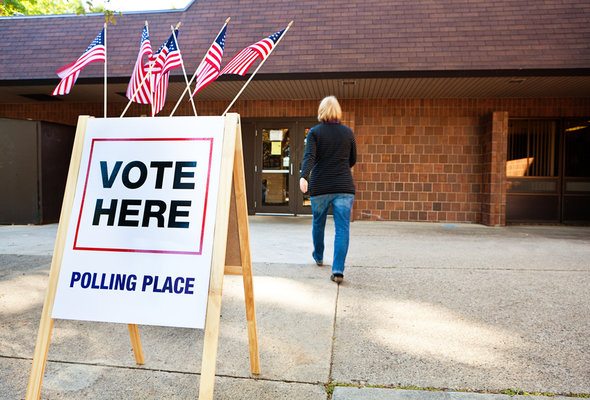Pros and Cons of the Electoral College

(Image via Smart Asset)
December 10, 2020
The Electoral College system has caused much controversy. It came under heavy criticism after the 2016 presidential election. Republican Donald Trump lost the nationwide popular vote to Democrat Hillary Clinton by over 2.8 million votes but won the Electoral College therefore the presidency by 74 electoral votes. The relevancy of the Electoral College system is a matter of ongoing debate that seems to flare up like clockwork every four years. Will Delehanty, associate professor of political science at Missouri Southern State University, stated, “It basically comes down to a war waged between the ‘one person, one vote’ system and the ‘winner takes it all’.”
Some say the electoral college is key to maintaining what’s good about U.S. politics, while others want to abolish the institution in favor of a more direct system. Advocates would argue that The Electoral College gives the small states an equal voice. If the president was elected by the popular vote alone, candidates would mold their platforms to cater to the more populous states. Candidates would have no desire to consider, for example, the needs of farmers in Iowa or commercial fishermen in Maine. Another rationale for the electoral college may be that The Founding Fathers created the Electoral College in the US Constitution because they thought it was the best method to choose the president. According to Procon.org “Using electors instead of the popular vote was intended to safeguard against uninformed or uneducated voters by putting the final decision in the hands of electors most likely to possess the information necessary to make the best decision.” This also prevents states with larger populations from having undue influence, and to compromise between electing the president by popular vote and letting Congress choose the president.
Although the electoral college has its advantages, it also has its disadvantages. For example, in five presidential elections so far, 1824, 1876, 1888, 2000, and 2016, a candidate lost the nationwide popular vote but was elected president by winning the Electoral College vote. This potential to override the “will of the majority” is often cited as the main reason to abolish the Electoral College. The Electoral College can make those who aren’t in the swing states feel as if they don’t have power. A common argument against the Electoral College is the needs and issues of voters in the 14 swing states, those that have historically voted for both Republican and Democratic presidential candidates get a higher level of consideration than voters in other states. The candidates rarely visit the predictable non-swing states, like Texas or California. Voters in the non-swing states will see fewer campaign ads and be polled for their opinions which is seen more in those swing states. As a result, the swing states, which may not necessarily represent the entire nation, hold too much electoral power.
So how do we fix this? Abolishing the Electoral College would require a constitutional amendment, a lengthy and often unsuccessful process. However, there are proposals to “reform” the Electoral College without abolishing it. One such movement, the National Popular Vote plan would ensure that the winner of the popular vote would also win at least enough Electoral College votes to be elected president.









































































































































